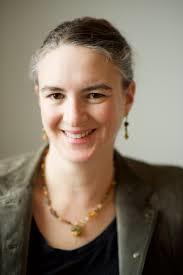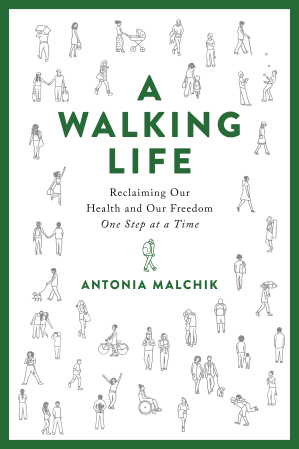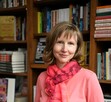Interview with Antonia Malchik
 I am thrilled to interview Antonia Malchik about her book On Walking! I’m a big fan of her work. She and I first connected online thanks to Full Grown People, a brilliant collection of essays, and later got to meet in person for coffee. Today, we discuss her fabulous new book on the importance of walking (I was amazed to learn that there is a correlation between walking and children’s reading ability), life in Montana, and books, books, books. I hope that you will enjoy the interview!
I am thrilled to interview Antonia Malchik about her book On Walking! I’m a big fan of her work. She and I first connected online thanks to Full Grown People, a brilliant collection of essays, and later got to meet in person for coffee. Today, we discuss her fabulous new book on the importance of walking (I was amazed to learn that there is a correlation between walking and children’s reading ability), life in Montana, and books, books, books. I hope that you will enjoy the interview!
I love the essay The End of Walking, which was published by Aeon in 2015. How did you get interested in walking?
At the time I wrote my first essay about walking, I was living in upstate New York, in a mostly rural, partly exurban area and raising two young children. When my son was two and I was pregnant with my daughter, we had a huge snowstorm that blew out the power of several nearby towns and I was completely stranded because the snow was so heavy and thick that none of the plow services could get down our driveway. My son had already been hospitalized twice for asthma, and it struck me hard that our house–and most of the area we lived in–was built solely for access by car. I had no other way of getting anywhere, even in an emergency.
Somewhere in that period I came across research from occupational therapists about the links between walking and children’s reading ability (specifically, some research that seemed to show kids who never crawled ended up being late readers) and got fascinated with the cognitive aspect of walking, which I’d never thought about before. I read about development of walking robots, and it fascinated me that this activity–bipedal walking–is something most of us do without thinking about it, but it’s actually so complex that the smartest engineers in the world can’t yet design or program robots that can walk on two feet through the random, unpredictable world the way that we do. Every step we take, our brain does something like a billion calculations to keep us upright and make it all work. Several years and thousands of pages of research later, the effort that our brains put into walking on two feet still blows my mind.
Can you tell us a bit about your book A Walking Life?
A Walking Life is about how walking made us human. Walking is how we evolved physically, but walking in this unique way (bipedally, which no other mammal does habitually) also helped lead to formation of collaborative communities, and is deeply intertwined with our brain health and development. It’s also about how we lost the right to walk through a century of car-centric design and how we’re getting it back. A lot of questions drove me, but one big one was that nearly every person can walk, so what keeps us from doing so? What choices to we make as individuals, but even more so as societies, that prevent access to walking? Who gets to walk and where, and how do we change that, especially for people with disabilities? What does walking have to do with community, and with loneliness?
You lived in Russia, Austria, and Australia before moving back to Montana. What brought you back to Montana?
My husband, who’s English, worked for a company that transferred us to different countries, and I really enjoyed that part of our life. But after we’d lived in upstate New York for several years, I realized that we were probably going to be staying in the U.S. There are a lot of aspects of life on the East Coast that are wonderful, but raising kids in New York, even a rural area, was really hard. The state’s education system went all-in on standardized testing when the Common Core was implemented, and we seemed to be surrounded by miserable, stressed-out 5-year-olds who were losing recess and art programs in favor of test prep, and parents stressed out about what kinds of colleges their kids would eventually get into. I ended up homeschooling, and after a while wanted to be able to raise my kids with the love of the outdoors–and access to public lands–the strong communities, and the less pressure-filled lifestyle that I’d grown up with. My husband wanted to move to one of Montana’s university towns, but I pushed for us to go back to my hometown, in part because it’s really walkable (it’s intentionally designed that way) and I knew that we could live in or near town and my kids would finally learn that they could get to places on their own two feet. Until we moved back to Montana, their only understanding of “going” places was via the car.
What keeps you there?
The lifestyle is unbeatable if you like the outdoors, which I do. We love to hike and camp and fish and ski and all the other things we can do in National Forests and wilderness areas nearby. But I also find the community second to none. It’s always been clear how engaged people are in my town. They show up at City Council meetings, volunteer at the school. People like to get involved and get their hands dirty and that creates the foundation for a strong community. There’s never universal agreement about anything, but people show up and stay involved. I truly believe that strong communities are where are future is headed if we’re to combat climate change and all of the other seemingly intractable problems our societies face, and I love that my kids are just naturally exposed to how to do that.
You and I first met through Full Grown People and Twitter, which led to meeting in person. Can you talk about the choice to step back from social media?
Meeting in person was wonderful! And Full Grown People still has some of the best personal essays online.
I thought for a long time about this and took it very slowly. I deleted my Facebook account about two and a half years ago, and my Twitter account a year ago (my Twitter addiction was firmly entrenched; it took me a year after deletion to stop checking Twitter, especially for politics news). For Facebook, it felt like conversations were increasingly black-or-white. It was very difficult to have a discussion that included nuance, much less listening to one another. There is a lot of good community formation on Facebook, especially among writers, but I’m a slow thinker, a listener, and a quiet person. It takes me time to mull over ideas and opinions, and I have a strong aversion to absolutes. My father is from the Soviet Union. He grew up under Stalin; maybe because of that I’ve never felt that telling people what to think or how to feel is an effective way of accomplishing anything, yet Facebook seems to encourage that kind of communication. I’m also really private, and there came to be too much crossover between my “public” self and my “personal” self on Facebook. There is a lot about my life that I’ll discuss with my close friends, but not with people I don’t know well.
A lot of those same reasons apply to Twitter, with the added aspect of having a lot of abuse thrown at you. It felt like I walked past someone’s house every day and that person hurled abuse at me from their porch, but people kept telling me I couldn’t change my route to avoid it because I needed that particular path to build a platform. That probably doesn’t make much sense! But a lot of people only seem to stay on Twitter because we’re told we need it to build a platform, and I just decided at one point that a) I didn’t really buy the platform idea, and b) even if it were true it wasn’t worth how horrible it made my life feel a lot of the time.
That’s a really long answer, but I don’t regret it and a lot of the research I engaged in through writing the book reinforced the choice (for me personally, I’m not saying for anyone else). I spent a ton of time walking and pondering research and ideas, and realized that when I got to the end of my life I wanted to remember the smells and sounds of those walks, the sights of trees and neighbors and mountains, not worrying about posting one last tweet. I wanted to make looking at the stars a priority, not checking my Facebook feed. I signed up for a couple of newsletters from people and places I trusted, and embarked on an effort to see if I could help make a better world for everyone partly by curating my own engagement with the world instead of letting social media do it.
I am on Instagram (@antoniawalks) and feel very torn about that. It feels necessary to be online somewhere.
What advice would you give writers?
I once was sitting at a lunch table with Chip Blake, editor-in-chief of Orion magazine, and I can’t remember what we were talking about but he said this line that I wished I’d heard years earlier: “You have to be a good host to your reader.” That guides all my writing now. We’re told early on that we can’t worry about readers, we have to write for ourselves. And at one level that’s totally true. But on another level we want people to read our work, and that means that once we’ve served ourselves in our work, gotten to the nugget of whatever is driving us in this particular project, we do have to think about the readers. This came home to me when my agent was pitching my book proposal to publishers. I saw the responses, both positive and negative, and I realized that I was asking a publishing company to take a complete gamble and support an idea just because I was passionate about it. That’s when the importance of nonfiction book proposals became clear to me. I had to help them understand why the gamble would be worthwhile for them. If we want people to read us we have to give them a reason to do so.
What books are on your nightstand?
I’m reading a bunch of books of all kinds, but I really tried to forefront Indigenous stories in my book, and have been focusing on finding and reading Indigenous authors over the past year. I loved Tommy Orange’s There There but there are others:
Sacred Wilderness, by Susan Power (I recently reread The Grass Dancer and loved it all over again)
Jimmy Bluefeather, by Kim Heacox
Moon of the Crusted Snow, by Waubgeshig Rice
The Marrow Thieves, by Cherie Dimaline
In the Courts of the Conqueror: The 10 Worst Indian Law Cases Ever Decided, by Walter R. Echo-Hawk
(I’m eagerly awaiting the autumn publication of Mark Charles’s book Truth Be Told: The Doctrine of Discovery and the Root Cause of Racial Injustice, about the Doctrine of Discovery and the damage it’s done over the centuries)
What’s next?
I’m working with both book festivals and walking advocacy groups to go to various cities for talks and presentations–and walks! The Tattered Cover in Denver arranged an hour-long walk before my book reading there and I thought it was a great idea so am stealing it. I’ll be on a panel about walking as a part of the creative process at the Montana Book Festival in September, and am working with a pedestrian advocacy group in the Twin Cities to talk there.
And I’m close to being done on a second nonfiction book proposal, but have a lot of other things on my plate right now (in addition to the usual summer activities of hiking and camping and paddleboarding and kid-wrangling). I work as a freelance copy editor for textbook publishers, so am doing that, and am also working as a book coach for a roboticist, which is a wonderful experience. She’s incredibly smart.




